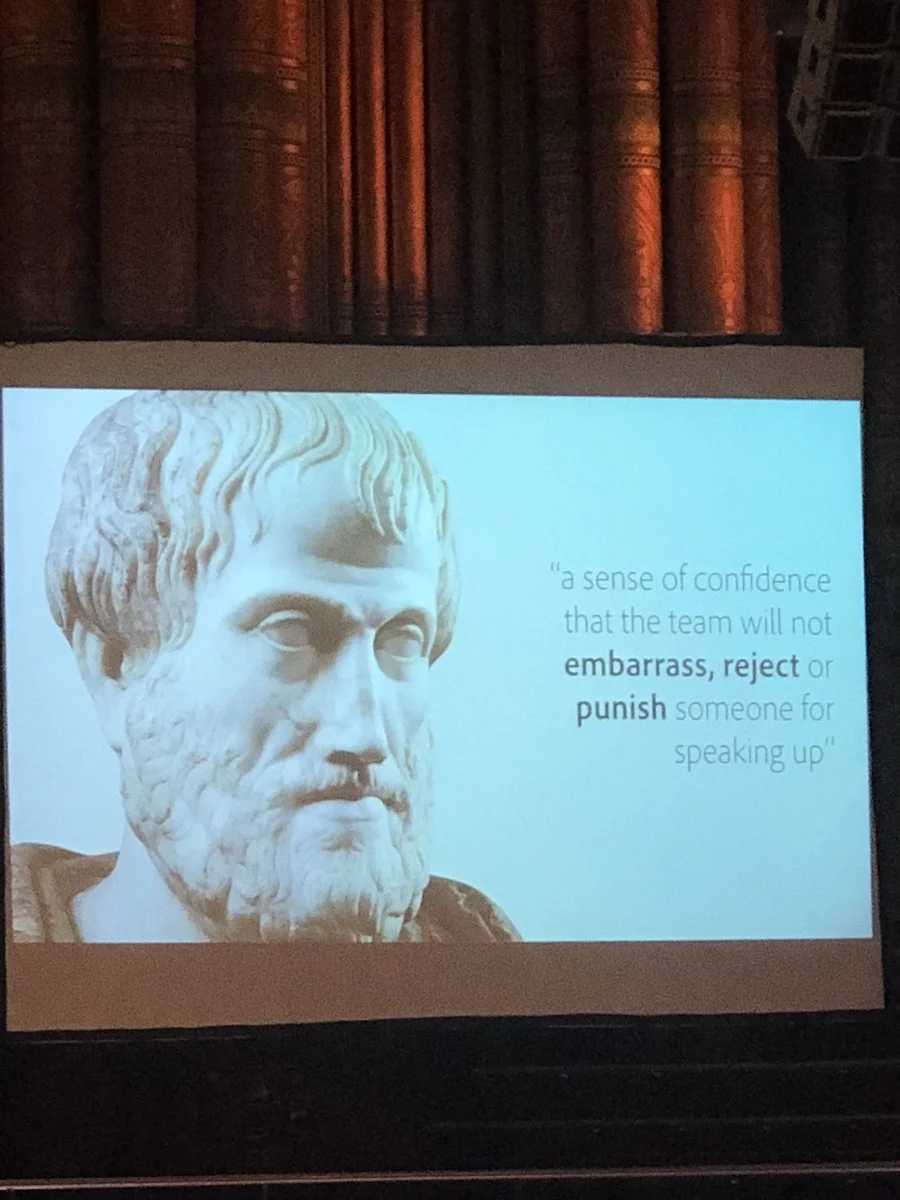“‘The Future Is Already Here, It’s Just Not Very Evenly Distributed’”
We’re all familiar with the adverts ‘If Carlsberg did…..they’d probably be the best in the world’. Well, if they did conferences, they would look something like Canvas. Bought to us by the lovely people @project383, Canvas is a conference that showcases ‘insider stories from product people’ - honest stories on what has or has not worked for some of the most innovative and game changing businesses in the world today. And with a lineup that includes representatives from @Google, @Microsoft and @All4 to name but a few, I’m not kidding when I refer to them as innovative or game changing - they seriously are.
This is the first time Bromford Lab has attended this conference so we didn’t really know what to expect but it's safe to say that myself, Simon and Katie were all seriously inspired by what we heard and it's got us thinking about how we can translate some of these insights back to the Lab and into the projects we are currently working on or hope to bring to life. Writing this blog is incredibly hard as I’d love to give you a minute by minute account of what went down (although you could get that just from looking at my Twitter feed - no joke!) and I feel that whatever I write, my summary won't even come close to doing justice to how seriously good the day was. So, I’ve collated it all together to come up with my top five insights from the day...
#TeamLab Day Out!
1 - Problems are everything as without them, you have no need for a solution
This was perfectly summed up by Sarah Milton from @All4 when she opened with the line ‘focus on delivering outcomes, not features’ All of the speakers discussed the importance of identifying the problem or challenge you are trying to address before you start your design process. As Hamish Grierson from @thriva pointed out, this helps you to remember the basics and why you entering this design process in the first place, as all too often, people can get distracted and make decisions that are counter-intuitive to what you are trying to achieve. Sometimes the problem may not be obvious - both @Monzo and @Starling were created off the back of bad personal experiences with the UK and overseas banking products and Thriva was created to promote the benefits of preventative health care. Either way, all of the speakers had a clear vision on what they were trying to achieve when they started the process of their respective products, all using a variety of methods to define the problem or challenge at hand before launching into a build.
2 - Customer trust and building a positive experience is crucial, even in innovation
Who knew something this bad could spark inspiration?
As @hugocornejo from Monzo reminded us, the UK banking system was responsible for designing the pen on a string, so if they don’t trust you with a pen, what do they actually trust you with? Thinking about what the customer wants and how you are going to build their trust and foster loyalty was a central theme to all the keynotes, whether this be in the provision of products or services. Whilst this may be a shock to some, in an ever increasing digital age, customer trust and loyalty is the most important currency a customer can trade with, therefore positive experience design is crucial.
3 - Take inspiration from everywhere, not just the industry you are in
Improv is not something you would normally associate with innovation but it turns out the popular ‘yes….and’ form of comedy is a source of inspiration for many within the product/service design industry. This particular train of thought helps people to understand all the potential outcomes to a scenario, so the design can then be centred around those that are most important to your end customer and was used by Google in its design of the personality for Google Home. Monzo and @Duolingo also talked about taking inspiration from the gaming industry when designing the visuals for their products, particularly in the case of Duolingo, who found that introducing badges, streaks and achievements helped motivate users even more to create the daily habit building that is so important when learning something new.
4 - Testing and acting on feedback pays dividends
What has worked for these guys is really listening to their customers and making decisions based on facts rather than assumptions. As Haiyan Zhang from Microsoft reminded us, it is important to use the data but you should always reference it back to see how it relates to human problems. This sentiment was echoed by Bo Ren of @Tumblr who discussed the importance of testing your assumptions through user testing, more specifically around not being afraid to rollback something if it doesn’t work.
5 - Happy people + Balanced Skill Set = One Heck of a creative team
It’s true - Jeffery Veen used the final session of the day to talk about how teams succeed and it turns out that as long as you keep them happy, with a sense of confidence that the team will not embarrass, reject or punish someone for speaking up, they are more likely to have that winning edge.
This was a common theme throughout, with Sarah Guha of Starling Bank also talking about moving away from traditional business cultures to remain at the forefront of innovation within the banking industry. Not only were the businesses advocating a more supportive and flexible environment, but they also acknowledged that you don’t have to come from a product/service design background to possess key creative and design thinking skills that can add value to your team. I mean, Zan Gilani of Duolingo studied humanities at University and entered into Duolingo as something entirely different before realising he wanted to work in product management, and he is part of the most successful education app in the world! The important take away on this one was about getting to know yourself as a creative and using your skill set to collaborate with others in your team to solve particular problems or issues, as this often leads to the best solutions.
As the opening session stated, Canvas wasn’t about proclaiming to have a silver bullet but more around sharing experiences. Certainly from a Lab point of view, it was refreshing to hear that even trailblazers like these guys have had projects that haven’t quite worked out or hurdles they have had to overcome to get ideas out there. What was even more inspiring was how they dealt with all this and used these experiences as learning to shape future decisions or ideas. Give me this over a silver bullet any day.
“Simple Doesn’t Mean Easy, And Obvious Doesn’t Mean You Understand What You Are Working On.”










